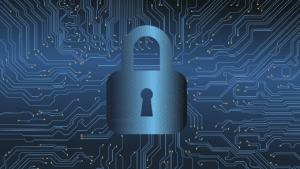In today’s hyper-connected world, the importance of network security cannot be overstated. It stands as the digital frontline defense against a variety of cyber threats that aim to compromise our systems, data, and online activities. As we increasingly rely on the internet for daily tasks – from personal banking to remote work – the need to secure our networks has become more critical than ever.
The Growing Threat Landscape

Cybersecurity risks are constantly evolving. Cyber criminals are becoming more sophisticated, employing innovative and increasingly harmful techniques to infiltrate networks and steal sensitive data. Malware, ransomware, phishing attacks, DDoS attacks, and data breaches are but a few examples of threats we face daily.
Data breaches, for instance, can have far-reaching impacts beyond the immediate financial damage. These include loss of customer trust, damage to brand reputation, legal ramifications, and potentially devastating personal ramifications for individuals whose private data is exposed.
The Value of Information

One key reason behind the importance of network security lies in the value of the information that networks often hold. This can range from sensitive corporate data, intellectual property, to personal user data such as credit card details, social security numbers, and healthcare records. In the wrong hands, this information can be used maliciously, leading to identity theft, financial loss, and even corporate espionage.
Network Security and Compliance

Compliance is another crucial element in the network security landscape. Several industries have strict regulations about data management and protection. Non-compliance with standards such as GDPR, HIPAA, or PCI DSS can lead to significant fines and penalties. More than ever, network security is essential to ensure adherence to these regulatory requirements.
Business Continuity

Ensuring the uninterrupted operation of a business in the wake of a cyber attack is a crucial reason to prioritize network security. Cyber attacks can cause substantial downtime, leading to lost productivity and revenue. For instance, if a company’s network is compromised, it may be forced to halt operations until the threat is neutralized. This could mean lost sales, missed opportunities, and potentially damage to the company’s reputation if customers or clients are impacted by the disruption.
Moreover, following a successful attack, a significant amount of time and resources may be needed to recover. This process could include identifying the extent of the damage, eradicating the threat from the network, restoring data from backups (assuming they exist and were not also compromised), and implementing measures to prevent similar attacks in the future. All of these steps can take significant time, further prolonging the disruption to the business.
By having robust network security measures in place, businesses can mitigate the impacts of cyber attacks and reduce downtime. A comprehensive security strategy may incorporate elements like real-time threat monitoring, redundant systems, regular backups, and an incident response plan to quickly address any breaches. In addition, businesses should consider cybersecurity insurance as a part of their risk management strategy to cover any potential financial losses from cyber attacks.
Through such measures, business continuity planning, a facet of network security, ensures that services remain available to customers and the organization can keep functioning even in the face of a cyber attack. The ultimate goal is to minimize disruption, maintain trust with clients, and protect the bottom line. As such, the importance of network security to business continuity cannot be overstated.
The Human Factor
 The human element is often the weakest link in network security. Despite advanced security infrastructure, one unsuspecting click on a malicious email link can open the door to cybercriminals. This underscores the importance of securing the network and instilling a strong culture of cybersecurity awareness among employees and users.
The human element is often the weakest link in network security. Despite advanced security infrastructure, one unsuspecting click on a malicious email link can open the door to cybercriminals. This underscores the importance of securing the network and instilling a strong culture of cybersecurity awareness among employees and users.
Steps Towards a Secure Network
Implementing a robust network security strategy involves several key components. These include firewall protections, intrusion detection systems (IDS), intrusion prevention systems (IPS), secure Wi-Fi, Virtual Private Networks (VPN), regular patching and updates, strong password policies, and comprehensive employee training.
More advanced strategies may also employ Artificial Intelligence and Machine Learning technologies for threat detection and response. These technologies can learn from the patterns in network traffic to identify unusual activity, providing a more proactive approach to network security.
In conclusion, securing your network is not merely an option; it’s an absolute necessity in today’s interconnected world. It protects your valuable information, ensures business continuity, aids in compliance with regulatory standards, and fosters trust with your customers. Given the evolving threat landscape, a robust network security strategy requires continual attention, adjustment, and investment – but the cost of not doing so could be far greater.
